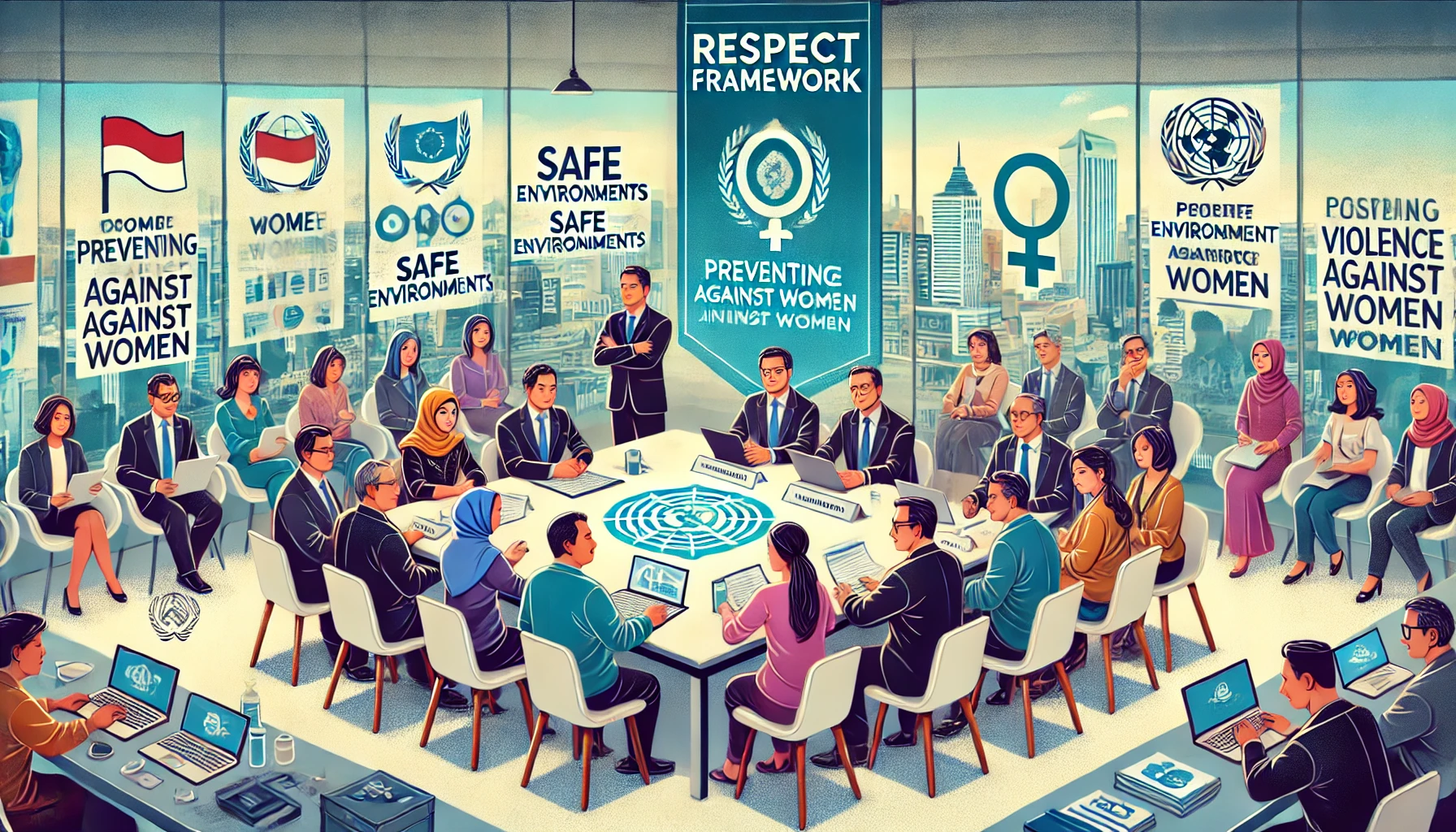A New Approach to Gender Violence: Indonesia’s Integration of the RESPECT Framework
The WHO, in collaboration with UN agencies, adapted the RESPECT framework in Indonesia to address violence against women, focusing on capacity-building, government support, and policy integration. Despite progress, further commitment and research are needed for long-term success.

A recent report published in the Bulletin of the World Health Organization explores the adaptation of the RESPECT framework in Indonesia to address the persistent issue of violence against women. This effort was led by WHO Indonesia, in collaboration with several United Nations (UN) agencies, including UN Women, the UN Population Fund (UNFPA), the United Nations Children's Fund (UNICEF), the United Nations Development Programme (UNDP), and the Joint United Nations Programme on HIV/AIDS (UNAIDS). Indonesia, despite its extensive legal framework to combat violence, continues to grapple with high rates of violence against women. According to a 2021 survey, 26.1% of women aged 15–64 reported experiencing violence at some point in their lives, and 8.7% had faced violence in the past year. The survey, which included a sample of 12,800 women, highlighted the severe and ongoing challenges that Indonesia faces in addressing gender-based violence, even with national laws and policies in place.
The Challenge of Adapting a Global Framework
The RESPECT framework, introduced by WHO in 2019, is an evidence-based strategy aimed at preventing violence against women globally. However, in Indonesia, the challenge lies in adapting this framework to suit local realities. Although the framework had been piloted in other low- and middle-income countries, its application in Indonesia required a tailored approach due to specific bureaucratic, cultural, and logistical hurdles. For instance, despite Indonesia’s strong regulatory framework, including laws on domestic violence, child protection, and sexual violence, the enforcement of these laws has been inconsistent. Furthermore, data collection on violence against women has been hampered by bureaucratic inefficiencies, varying standards, and limited resources, resulting in unreliable statistics. These inconsistencies pose a major challenge for implementing evidence-based frameworks like RESPECT, which rely on robust data to inform policy decisions.
Securing Government Commitment
The capacity-building initiative to introduce RESPECT in Indonesia involved several steps, starting with preparatory dialogues between the UN agencies and Indonesian government ministries, including the Ministry of Women Empowerment and Child Protection. From January to May 2023, this engagement was crucial for securing initial government buy-in. The timing of these discussions aligned with the Indonesian government’s focus on the recently enacted Law on Sexual Violence Crimes, which created a more conducive environment for advocating the adoption of RESPECT strategies. The UN officers involved leveraged the ministry’s prior experience with global guidance on violence prevention, particularly through UNICEF-supported initiatives, to push for the adoption of RESPECT.
Developing a Tailored Capacity-Building Module
In July 2023, WHO Indonesia hired consultants specializing in violence against women to develop a comprehensive capacity-building module. This module, designed as a flexible, “living document,” incorporated feedback from various stakeholders and was aligned with the seven key strategies of RESPECT. These strategies included empowering women, strengthening relationship skills, ensuring access to services, reducing poverty, creating safe environments, preventing child abuse, and transforming harmful attitudes and norms. To further contextualize these strategies for Indonesia, success stories from the Better Sexual and Reproductive Health and Rights for All in Indonesia (BERANI) project were included to demonstrate how RESPECT principles could be applied to local settings. The BERANI project had previously been successful in providing essential services to survivors of violence, raising awareness among adolescents, and influencing national policies on sexual and reproductive health rights.
Capacity-Building and Workshops for Stakeholders
The first round of sensitization training took place in August 2023, introducing the RESPECT strategies to 30 participants from government, UN agencies, and civil society organizations. This was followed by a larger workshop in September, which included 67 participants from 37 organizations. These workshops aimed to map best practices for violence prevention, develop theories of change, and formulate action plans for integrating RESPECT into Indonesia’s national policies. Notably, the workshops also engaged representatives from grassroots organizations, including groups supporting vulnerable women, young women, people with disabilities, and transgender women, thus ensuring a more inclusive approach to violence prevention.
Moving Toward Policy Integration
By November 2023, the capacity-building efforts had secured a verbal commitment from the Director for the Protection of Women’s Rights at the Ministry of Women Empowerment and Child Protection to integrate RESPECT into Indonesia’s National Medium-Term Development Plan for 2025–2029. This commitment marked a significant milestone, symbolizing the government’s willingness to adopt global guidelines on violence prevention and tailor them to the local context. However, while the initial commitment is promising, further follow-up will be essential to ensure the framework’s integration into actual policies and programs.
The report highlights several key lessons learned from the adaptation of RESPECT in Indonesia. First, securing government support is critical, particularly for complex, multi-sectoral issues like violence against women. This requires a comprehensive advocacy process, supported by capacity-building initiatives and engagement with key stakeholders. Additionally, having dedicated personnel and resources is vital for ensuring the successful implementation of the framework. The UN agencies involved in this project played a crucial role in facilitating stakeholder engagement, providing technical expertise, and financing the initiative. Lastly, the report underscores the importance of improving research, monitoring, and evaluation processes to support evidence-based decision-making. While Indonesia’s implementation of RESPECT is still in its early stages, the collaboration between government, UN agencies, and civil society offers a promising pathway for addressing violence against women in the country. Further research and ongoing commitment will be necessary to ensure long-term success.
- FIRST PUBLISHED IN:
- Devdiscourse
ALSO READ
Philippines Finalizes Transfer of Death Row Inmate from Indonesia
Taiwan's President Appeals for China's Respect Amid Renewed Tensions
"They disrespected BR Ambedkar during emergency period": Prahlad Joshi slams Congress
Indonesian Ministry of Tourism Promotes the Wonders of Indonesia: Lombok and Central Java
RPT-UPDATE 3-Indonesia, Philippines agree details on repatriating Mary Jane Veloso










